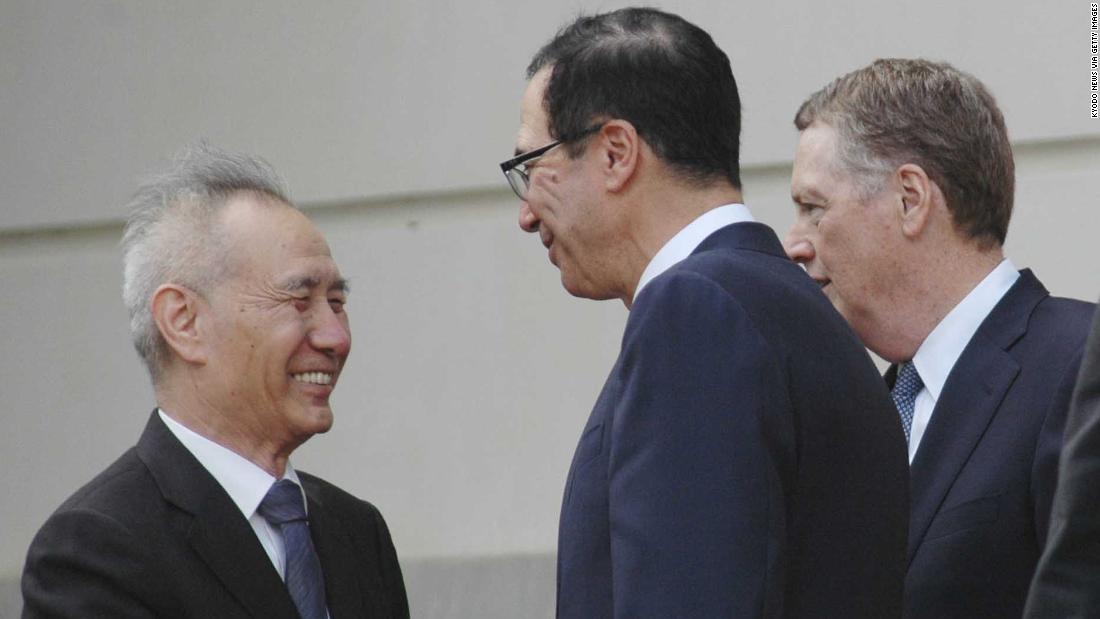
The resumption of the trade war between the United States and China has surprised investors and hit global stocks. The S&P 500 shed 2.2% and the Dow fell 2.1% for the week after President Donald Trump followed through on his pledge to hike tariffs on Chinese goods worth $200 billion. China has said it will retaliate, though both sides are still engaged in negotiations.
More than any other factor, trade has knocked back US stocks from recent record highs and has the potential to hurt stocks even more.
"The big issue for the market right now is clearly the trade issue," said Ed Yardeni, president of investment advisory firm Yardeni Research.
Back in December — the last time volatility was a major discussion — the market was sent into a panic over slowing economic growth, a hawkish Federal Reserve and unease of US-China relations.
Markets shot back up as those factors appeared to be addressed. The Federal Reserve under Jerome Powell adopted a wait-and-see approach and said it will hold interest rates steady. The global economic picture appeared healthier. And the Trump administration signaled it was moving toward a trade deal with China.
"There's no question what the Fed has done as far as backtracking has been a major boost to the stock market this year," said Peter Boockvar, chief investment officer at Bleakley Advisory Group.
Then came higher tariffs.
"Markets were expecting there to be a deal," said Adam Slater, lead economist at Oxford Economics. "I suspect they may have been overoptimistic on several fronts."
A 10% or 15% correction is a real possibility if the trade war continues to escalate, according to Yardeni. Detrick said US markets may fall 5% in the next month.
Risk is heightened by the fact that the United States is fighting a trade war on multiple fronts. Trump's threat to impose tariffs of 20% on cars from Europe could also come to a head soon, Yardeni noted.
For now, at least, investors will remain focused on talks with China. The consensus is that for the market to continue its run, a resolution is needed soon.
"You just don't want to see the two largest economies in the world at loggerheads for an extended period of time," Boockvar said.
2. Walmart earnings: Walmart (WMT) will report earnings on Thursday, and investors will want to know if the company can rein in the massive costs of battling Amazon (AMZN).
Walmart grew its digital business by about 40% last quarter, as it pumped resources into improving its own website, Jet.com and its online store offerings. But that's proven to be an expensive enterprise, pinching profit.
Also hurting profit: Walmart has given its employees a 50% raise over the past three years, including benefits and bonuses. That's the price Walmart has needed to pay to retain employees during the United States' lowest unemployment in five decades.
3. Econ watch: The Census Bureau will report US retail sales for April on Wednesday.
The retail industry is turning into a tale of the haves and the have-nots. While Walmart, Amazon, Macy's (M), Best Buy (BBY) and Kohl's (KSS) have adapted well to quickly changing consumer demands, others like JCPenney (JCP), Sears (SHLDQ) have not.
People are still buying stuff, though — they're just buying in different ways and at different places. Economists surveyed by Refinitiv expect retail sales rose 0.2% last month.
The University of Michigan will release its US consumer sentiment report for May on Friday. These reports tend to reflect how consumers digest news.
For example, when the US government shut down in the winter, sentiment fell. But following reports of a stronger-than-expected economy and historically low unemployment, economists surveyed Refinitiv expect sentiment to rise slightly from last month.
4. Coming next week:
Bagikan Berita Ini














0 Response to "The trade war is now the biggest risk to markets"
Post a Comment